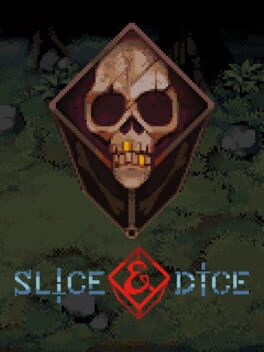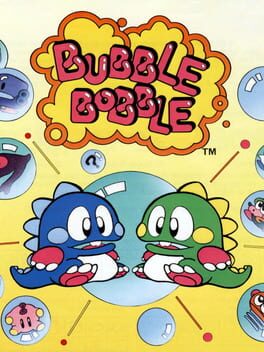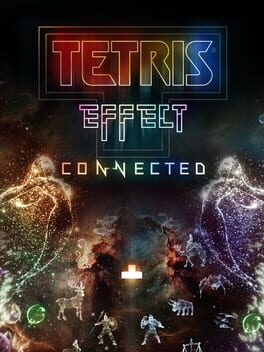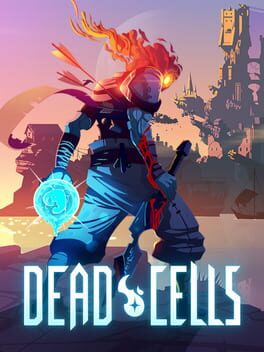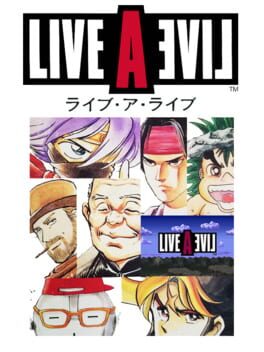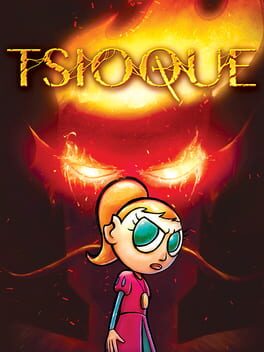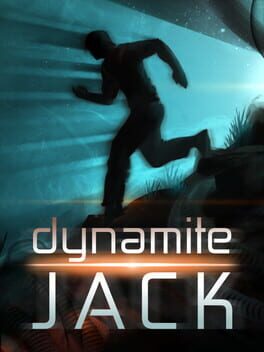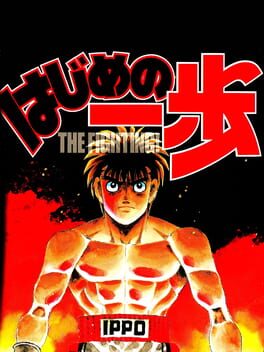EVX
Bio
All ratings are based solely on games completed without save states or the help of a guide. Incomplete or assisted plays are not logged.
Mostly retro apologia and remake seething.
All ratings are based solely on games completed without save states or the help of a guide. Incomplete or assisted plays are not logged.
Mostly retro apologia and remake seething.
Badges

Organized
Created a list folder with 5+ lists

1 Years of Service
Being part of the Backloggd community for 1 year

Listed
Created 10+ public lists

Adored
Gained 300+ total review likes

Gone Gold
Received 5+ likes on a review while featured on the front page

Trend Setter
Gained 50+ followers

Donor
Liked 50+ reviews / lists

Loved
Gained 100+ total review likes

Pinged
Mentioned by another user

Well Written
Gained 10+ likes on a single review

Popular
Gained 15+ followers

Liked
Gained 10+ total review likes

Best Friends
Become mutual friends with at least 3 others

Noticed
Gained 3+ followers

Roadtrip
Voted for at least 3 features on the roadmap

Gamer
Played 250+ games

N00b
Played 100+ games
Favorite Games
488
Total Games Played
014
Played in 2024
088
Games Backloggd
Recently Played See More
Recently Reviewed See More
In absolute awe of the nearly raw, undercooked nature of this game. It's weird, it's ambitious, it fails on multiple fronts. It's an RPG Maker game before RPG Maker existed, a borderline avant-garde experiment from a time when you had to call a factory and physically manufacture cartridges to get a game on the shelf.
More than anything: the combat. It's different, that's for sure. It's easy to see what they were going for, the positioning, unit facing, action delays. And… most of it doesn't matter? Combat is trivial until the final chapter, moderately challenging at best from then on. Status effects are plentiful but largely irrelevant, action timing is so very odd. Sometimes opening a menu allows another character to go, sometimes a unit will take 7 active turns to unleash an underwhelming move. Opponents need to spend time to reorient, but you do not, despite the numerous enemy moves that change your facing. You have a plethora of abilities on each character, most of them meaningless. The non-linear nature means everything before the finale is the exact same difficulty. Everything is just… there. A pile of ideas.
So it's a good thing the rest works. Yasunori Mitsuda's boss theme rips right out of the speakers, gets you hyped every time even though you know you're in virtually no danger. Every character has their own musical identity, each era is sonically unique. The themes slowly reveal themselves, the plot hook setting in as the chapters move on. The different genres have different mechanics, the dialogue has different fonts. Different artists for every scenario, different takes on the same message, an ending that pulls it all together. You see the credits no less than nine separate times, and they never let you skip them, treating each as a proper endroll.
It's uneven, a mess, and a reminder that Squaresoft's RPGs were almost always full of the same odd choices and missteps. More so here, but it's easy to point out in almost every title of theirs from the era. They took risks and then polished the results, the flaws harder to see in the resultant sheen.
More than anything: the combat. It's different, that's for sure. It's easy to see what they were going for, the positioning, unit facing, action delays. And… most of it doesn't matter? Combat is trivial until the final chapter, moderately challenging at best from then on. Status effects are plentiful but largely irrelevant, action timing is so very odd. Sometimes opening a menu allows another character to go, sometimes a unit will take 7 active turns to unleash an underwhelming move. Opponents need to spend time to reorient, but you do not, despite the numerous enemy moves that change your facing. You have a plethora of abilities on each character, most of them meaningless. The non-linear nature means everything before the finale is the exact same difficulty. Everything is just… there. A pile of ideas.
So it's a good thing the rest works. Yasunori Mitsuda's boss theme rips right out of the speakers, gets you hyped every time even though you know you're in virtually no danger. Every character has their own musical identity, each era is sonically unique. The themes slowly reveal themselves, the plot hook setting in as the chapters move on. The different genres have different mechanics, the dialogue has different fonts. Different artists for every scenario, different takes on the same message, an ending that pulls it all together. You see the credits no less than nine separate times, and they never let you skip them, treating each as a proper endroll.
It's uneven, a mess, and a reminder that Squaresoft's RPGs were almost always full of the same odd choices and missteps. More so here, but it's easy to point out in almost every title of theirs from the era. They took risks and then polished the results, the flaws harder to see in the resultant sheen.
Hey, look. It's a point & click by way of Dragon's Lair, lovingly hand-drawn, little quicktime sequences here and there. Tons of impish fantasy charm, really nails the whimsical fairy tale vibe. Sure, there's some inconsistencies, some odd choices here and there that stand out, but nothing egregious.
And then it cashes in, tosses a little coin of dread into the well. I quite literally swore quietly under my breath when it happened. This was going to be one of those games, a game with a southpaw hookshot under its belt. To Tsioque's credit, it spends that coin well, plays off its strengths, addresses its perceived weaknesses. A welcome surprise in a game already enjoyed.
And then it cashes in, tosses a little coin of dread into the well. I quite literally swore quietly under my breath when it happened. This was going to be one of those games, a game with a southpaw hookshot under its belt. To Tsioque's credit, it spends that coin well, plays off its strengths, addresses its perceived weaknesses. A welcome surprise in a game already enjoyed.
I get it. You see a game that's top down, destructible terrain, manually detonated bombs. That's Bomberman, right? Wrong.
This is Chip's Challenge, Stealth Edition.
And what's here works reasonably well. It's a slow start, for sure, and the game as a whole is distinctly a bit underbaked. Achievement sets for each level are nice, but the lack of one for accomplishing all of these optional objectives in one go is notably missing. There's speed-based leaderboards bolstered by collectibles that shave seconds off your time, but those collectibles are only found on one map in each area. There are achievements for killing all guards on a map, but that is always much easier than the pacifist runs. And so on.
The game is short, though, and has that distinct charm of a successful 2012 Ludum Dare project. A sequel would have been ideal, a game that learns its lessons and implements them from step one. But I had a good enough time to do almost every optional achievement, to collect all the collectables. The amateur presentation, the genuine hype over the music change in the last area, the charm of seeing one guy and some friends basically doing the best they can because they love video games and a proper dev shot at the end of the credits. Good stuff all around, just not great.
This is Chip's Challenge, Stealth Edition.
And what's here works reasonably well. It's a slow start, for sure, and the game as a whole is distinctly a bit underbaked. Achievement sets for each level are nice, but the lack of one for accomplishing all of these optional objectives in one go is notably missing. There's speed-based leaderboards bolstered by collectibles that shave seconds off your time, but those collectibles are only found on one map in each area. There are achievements for killing all guards on a map, but that is always much easier than the pacifist runs. And so on.
The game is short, though, and has that distinct charm of a successful 2012 Ludum Dare project. A sequel would have been ideal, a game that learns its lessons and implements them from step one. But I had a good enough time to do almost every optional achievement, to collect all the collectables. The amateur presentation, the genuine hype over the music change in the last area, the charm of seeing one guy and some friends basically doing the best they can because they love video games and a proper dev shot at the end of the credits. Good stuff all around, just not great.

